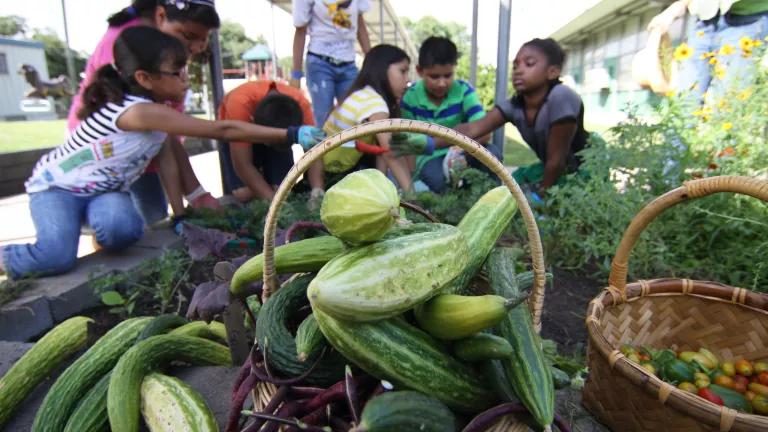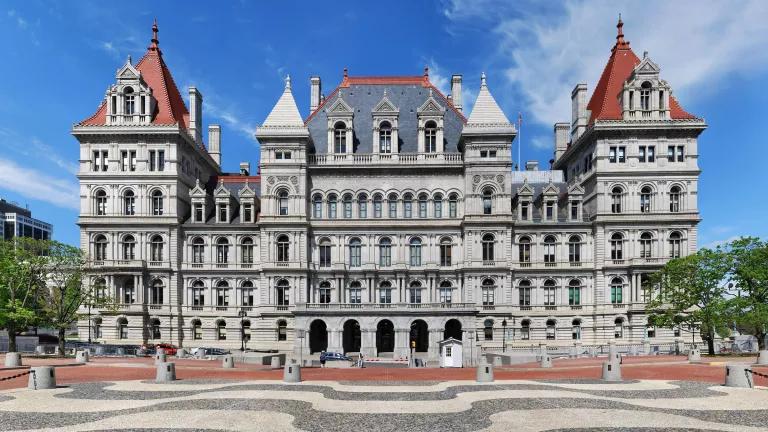Denver Solid Waste Management Helps Denverites Save the Food

Co-Authored by Tay Dunklee, Program Administrator, Denver Solid Waste Management
Imagine going to the grocery store, leaving with five bags of good wholesome food, dropping two of those bags in a dumpster on your way out, and continuing home without going back for them. That’s effectively what’s happening in our food system.
Now imagine that those same two bags worth of food were tossed into a compost pile where the food will eventually be turned into a nutrient dense soil amendment instead of rotting in a landfill and producing more climate pollution.
Compost is certainly a better alternative than ending up in the landfill, but wouldn’t that food be better off eaten?
Household food waste in Denver accounts for 41% of the food wasted in the city, averaging 4.2 pounds of food waste per person per week (of which, 3.2 pounds could have been eaten while the other pound is bones, pits, and scraps). Meanwhile, the average American family loses $1800 per year on food that is never eaten. In Denver 72% of residents think that they waste less food than their neighbors and 58% feel less guilty about wasting food if it is composted. When people don’t eat good food, they are not only wasting the money that they’ve spent on that food, but also all of the water, energy, labor, land and love that went into producing it.
Who better to encourage residents to waste less food than the agency responsible for Denver’s trash, recycling and compost collection?
Denver Public Works' Solid Waste Management
Denver Public Works’ Solid Waste Management (DSWM) team is on a mission to encourage Denverites to consider their own household food choices before trashing--or even composting--their leftovers. Through the Food Matters project, DSWM has integrated several wasted food prevention messages into outreach materials to Denver residents. DSWM has used the national Save The Food campaign as a launch pad for their outreach messaging. Save The Food aims to raise awareness about the impacts of food waste and arm households with the tools to reduce food waste in their own kitchens.
Denver Solid Waste Management is responsible for the collection of municipal solid waste within the City and County of Denver (including trash, recycling, and compost) from more than 181,000 households. DSWM has several programs including Denver Recycles and Denver Composts.
Denver Recycles manages a number of collection events and seasonal programs such as LeafDrop, a Mulch Giveaway and Compost Sale event in the spring, and many more programs ranging from electronics recycling to backyard composting education.
Denver Composts offers weekly collection of food scraps and yard debris from Denver homes using green curbside collection carts. The program has grown steadily since it began as a small pilot in 2008. As of 2019, the program is offered citywide and has more than 22,000 participating households. The program collected more than 8,000 tons of yard waste and food scraps in 2018. The rapid expansion of this program has been identified as a key factor in aiding the City in meeting its broader climate and sustainability goals.
A recent waste composition study conducted by the city and a food waste survey conducted by NRDC found that food is the single largest category of material in Denver’s waste stream. So, while composting is preferable to landfilling food waste and food scraps, there’s still a significant portion of waste that can and should be prevented from going to waste in the first place.

Cities, like Denver, are in a unique position to education residents with tips to reduce food waste at home. Cities can utilize existing partnerships, city-run websites, mailers and programming to get messaging out directly to residents.
Denver Recycles has employed food waste prevention messaging in the following locations:
-Citywide mailers sent to households not participating in the Denver Composts program.
-Print ads in neighborhood publications
-Billing inserts placed in stormwater bills (sent to all households in the city)
-Truck signs on Denver Solid Waste Management collection trucks
-Recycling newsletter for Denver Public Schools
Examples:
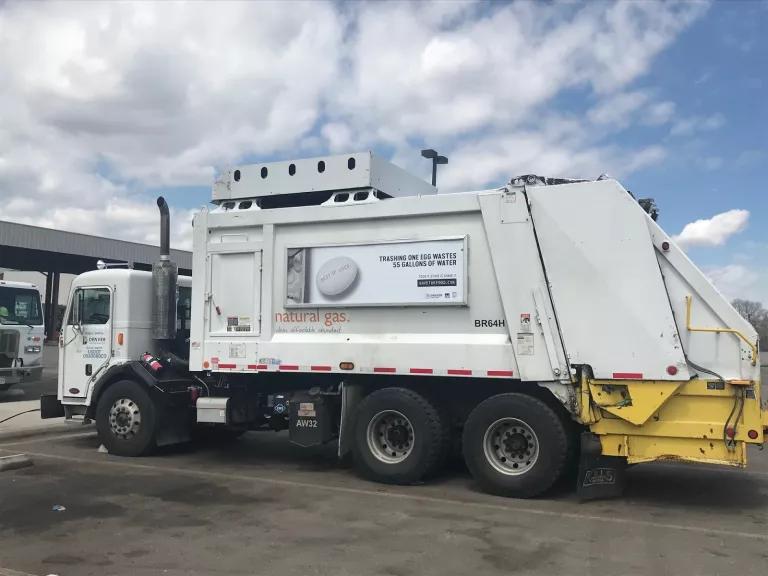
DSWD collection truck with customized Save the Food signage. DSWM worked with Save the Food to incorporate the City’s Public Works logo into artwork displayed on trucks.

Ad placed in neighborhood newspapers

Billing insert for stormwater bills

Denver Public Schools “My Save the Food” Pledge
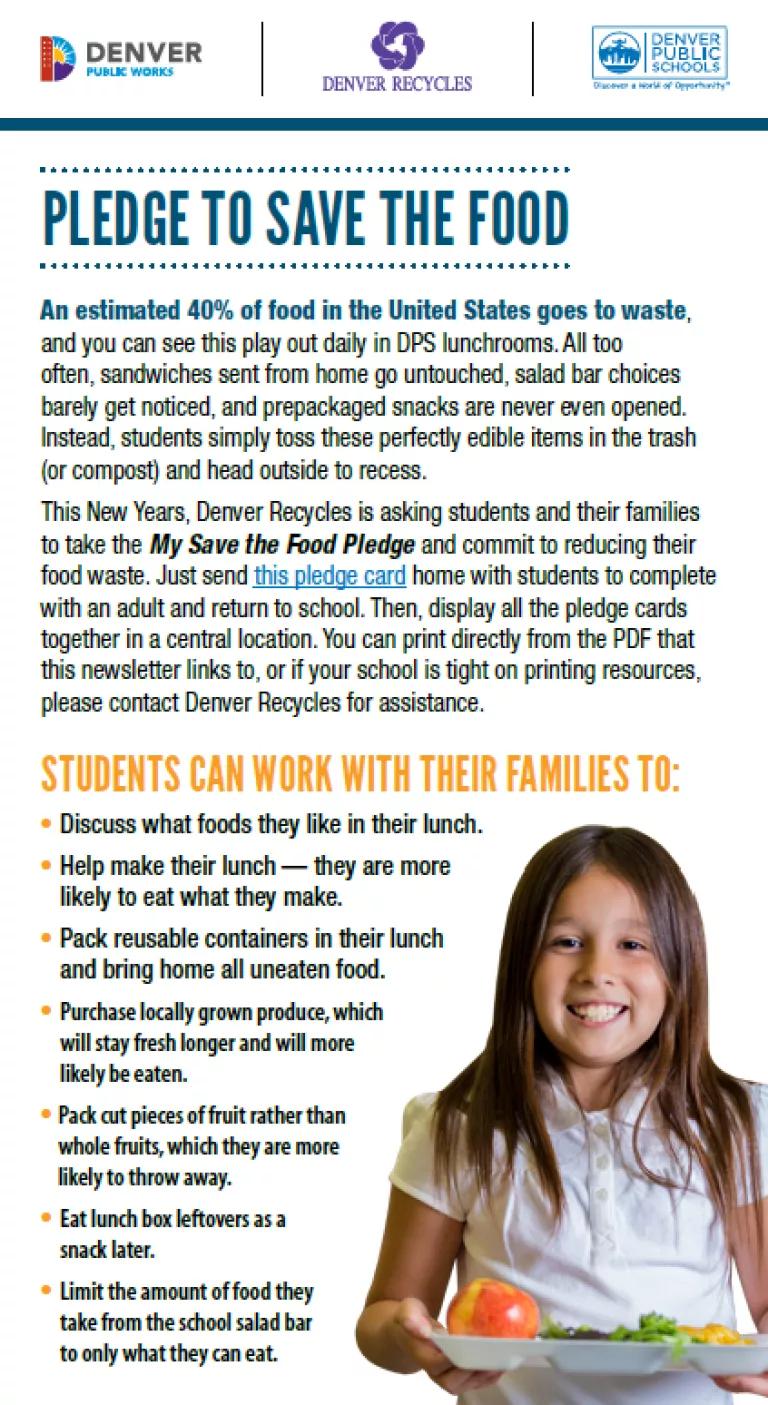
Story in Denver Public Schools newsletter
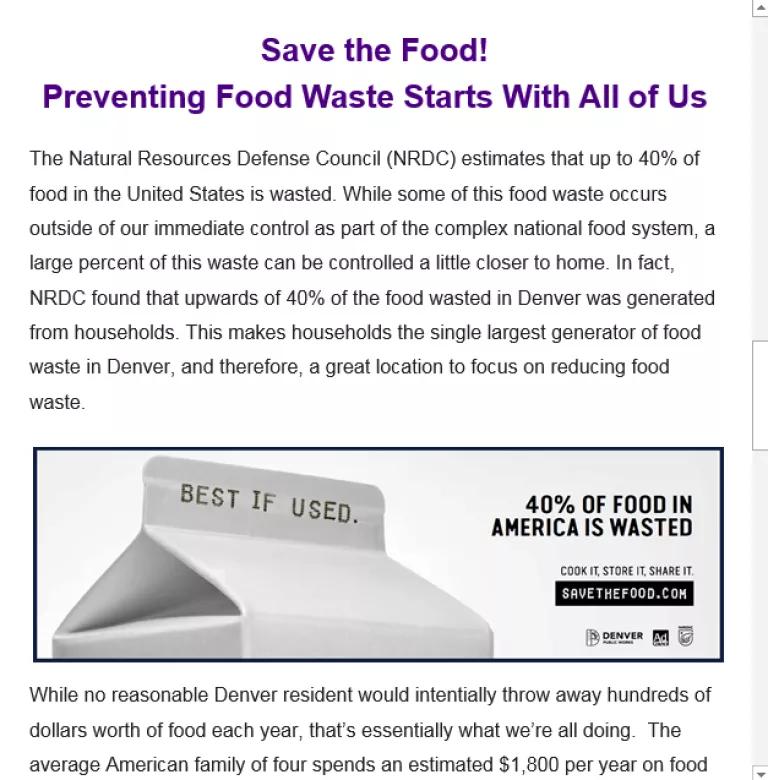
Story in monthly Denver Recycles’ Roundup newsletter
Save the Food and other wasted food prevention messaging can easily be integrated into food waste reduction plans across diverse city sectors, businesses and institutions, neighborhood groups and more. To learn more about how to use Save the Food messaging in your community, look at the NRDC Food Matters Public Education Materials tools for step-by-step directions, important considerations and adaptable templates.
Co-Authored by Tay Dunklee, Program Administrator, Denver Solid Waste Management

